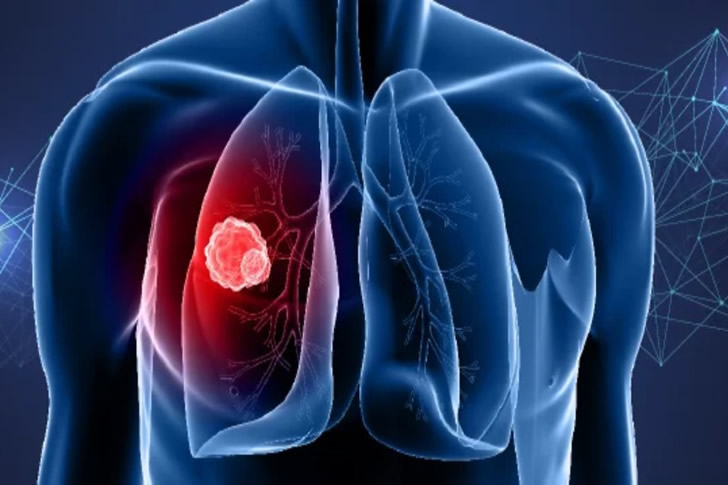Lung cancer is a serious condition often accompanied by symptoms like persistent cough and chest pain. This guide will provide practical tips and advice for managing these symptoms.

Lung cancer originates in the lungs and often goes undetected in its early stages because symptoms usually appear only when the disease is advanced. Recognizing the signs early and understanding the symptoms, like persistent cough and chest pain, can improve the quality of life and treatment outcomes for individuals dealing with lung cancer.
This is more than just a regular cough; it's one that doesn't go away or worsens over time.
Often characterized by a persistent, aching pain, this symptom may indicate lung involvement.
A persistent cough can be disruptive and distressing. Here are some tips to manage it:
Drinking plenty of fluids can thin mucus and make it easier to expel, relieving some symptoms of the cough.
Adding moisture to the air can soothe irritated lungs and may reduce the frequency of coughing.
Smoke, pollution, and strong scents can exacerbate a cough. Create a clean-air environment by using air purifiers and avoiding exposure to such irritants.
Over-the-counter cough suppressants may provide short-term relief. Always consult your doctor to discuss the use of prescribed cough medications suitable for lung cancer patients.
Sleeping with your head elevated can prevent nighttime coughing by reducing pressure on the breathing passages and lungs.
Take a hot shower and inhale the damp, warm air to help clear mucus and alleviate coughing.
To manage chest pain associated with lung cancer, try the following suggestions:
Over-the-counter painkillers like acetaminophen or NSAIDs may help minimize pain. Your doctor might prescribe stronger medications, such as opioids, for severe pain.
Techniques such as deep breathing, meditation, and progressive muscle relaxation can help lessen the perception of pain by reducing stress levels.
Use pillows to support your chest and adopt comfortable positions while sitting and sleeping to reduce pain intensity.
Applying a warm compress or heating pad to the affected area can soothe muscle tension and pain.
Gentle, low-impact exercises can improve circulation and reduce muscle stiffness, which may help alleviate pain. Involvement in a guided physiotherapy program under medical advice might also prove beneficial.
Consider alternative therapies like acupuncture and medicinal massages under the advice of your healthcare provider, as they may provide additional relief from chest pain.
Always maintain open communication with your healthcare professional. Here's why it's essential:
Your doctors can give advice specifically suited to your unique case and medical history.
Treatments for lung cancer can have side effects that need to be managed promptly and effectively.
Regular consultations enable healthcare providers to monitor the effectiveness of treatment strategies and make necessary adjustments based on how you respond.
The emotional burden of dealing with lung cancer, persistent cough, and chest pain can be immense. Support your emotional well-being through these steps:
Don’t hesitate to reach out for professional counseling or join support groups where you can talk to others going through similar experiences.
Lean on your loved ones for emotional strength and don't hesitate to ask for help when you need it.
These techniques can reduce anxiety and promote a more relaxed state of mind, which can mitigate the impact of both physical symptoms and mental stress.
Good nutrition can play a critical role in managing symptoms and maintaining strength. Here's how to optimize your diet:
Ensure you're consuming a well-balanced diet rich in fruits, vegetables, lean proteins, and whole grains.
Eating smaller, frequent meals instead of larger ones can prevent feeling overwhelmed and help your body better manage nutrition intake.
Speak with your healthcare provider about dietary supplements if you're struggling to get enough nutrients from food alone. This may be vital when your appetite is compromised by the illness or medications.
While lung cancer, persistent cough, and chest pain pose significant challenges, adhering to proper management strategies and following professional medical advice can help improve your quality of life. Remember the importance of maintaining physical health, emotional well-being, and open communications with your healthcare providers to navigate through this journey more comfortably and effectively.
Explore the Tranquil Bliss of Idyllic Rural Retreats

Ultimate Countdown: The 20 Very Legendary Gaming Consoles Ever!

Understanding Halpin and its Influence

Affordable Full Mouth Dental Implants Near You

Discovering Springdale Estates

Illinois Dentatrust: Comprehensive Overview

Embark on Effortless Adventures: Unveiling the Top in Adventures Made Easy Outdoor Equipment

Unveiling Ossur Valves: Innovation in Prosthetics

Unlock the Full Potential of Your RAM 1500: Master the Art of Efficient Towing!
